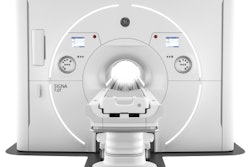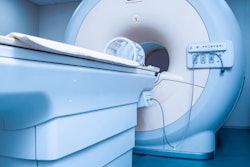
Patients don't seem concerned that postponing elective imaging -- such as many have had to do during the COVID-19 pandemic -- negatively affects their health, according to a study published November 2 in the Journal of the American College of Radiology.
Perhaps not, but if this lack of concern translates into less compliance for undergoing necessary routine or screening imaging, it could be a problem, wrote a team led by Dr. Giuseppe Carotenuto of New York-Presbyterian Hospital in New York City.
"Most patients perceive that postponement of elective imaging does not impact their health to a large degree," Carotenuto and colleagues noted. "[Yet] a prolonged lack of urgency in some cases may lead to a future increase in negative outcomes."
In March, New York-Presbyterian announced that elective imaging would be postponed in an effort to control the SARS-CoV-2 infection rate. As infection rates decreased, the hospital began to put a multiphased plan in place to reschedule delayed exams.
Carotenuto's team investigated whether there were particular factors that influenced patients' willingness to undergo elective imaging during this reschedule phase-in. Their study included 249 patients whose elective MRI exams were postponed between March 23 and April 24 due to the COVID-19 pandemic. Of these, 99 completed a survey that included questions regarding their perception of the effect of postponing the imaging exam, the safety of imaging, and factors important for rescheduling elective imaging.
The survey found the following:
- 68% of patients stated that postponing imaging had a small or no impact on their health.
- 68% stated that they believed it was fairly or extremely safe to undergo imaging during the pandemic.
- 53% stated that they believe there was no difference in safety between hospital and outpatient imaging locations.
- 84% of patients who had already had imaging or had rescheduled their MRI exams at the time of the survey stated they felt safe undergoing the exam.
- 95% of patients stated that staff friendliness was a fairly or extremely important factor in their willingness to undergo MR imaging during the pandemic.
- 94% stated that staff use of masks to control infection was fairly to extremely important.
Patients appear to have faith that the imaging suite is safe, even during the pandemic, the group noted. It is, however, important to help patients navigate a risk-benefit analysis, especially when imaging delays may result in negative outcomes: For example, neoplasm evaluation was the reason for the MRI order for 53% of patients surveyed, but there was "no difference in how these patients felt the imaging delay impacted their health compared to others," the team wrote.
In the midst of the pandemic, radiologists must evaluate the urgency of the MRI exam indication as well as infection rates in the community, according to the authors.
"It is critical for radiology practices to deliver a safe imaging experience so that patients feel reassured in getting their examination when referring clinicians determine that the benefits outweigh the risks," they concluded.





















